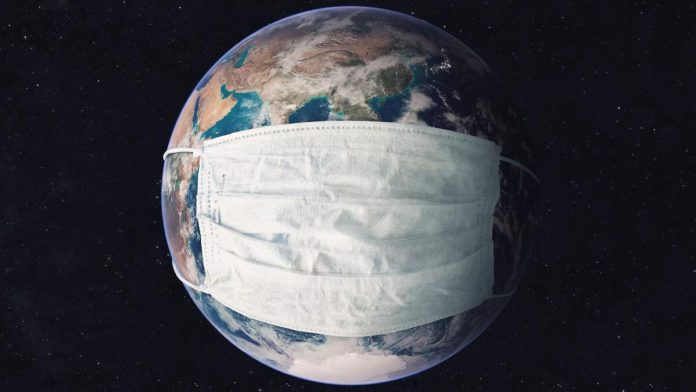Climate change is a global modification of the climate over a long period of time (from decades to millions of years). These changes can occur both regionally and globally. By climate change we mean the increase in temperature from the middle of the 20th century to the present day. Even though climate change can also have natural causes, it is largely related to human activity and greenhouse gases (the Solar Impulse Efficient Solutions, 2020).
A global conversation that began with concern over global warming has now turned to the broader term climate change, preferred by scientists to describe the complex shifts now affecting our planet’s weather and climate systems. Climate change encompasses not only rising average temperatures but also extreme weather events, shifting wildlife populations and habitats, rising seas, and a range of other impacts. Scientists are sounding the alarm and demonstrating figures and facts confirming the rapid melting of glaciers, the disappearance of forests, a decrease in the number of rare species of animals, and the deterioration of air quality even in natural zones. Not to mention the oceans, in which the islands of garbage float along with fish and other representatives of the fauna. All of these changes are emerging as humans continue to add heat-trapping greenhouse gases to the atmosphere. For several years now, we have been hearing the phrase “carbon footprint”, accompanied by calls to reduce it, in particular, to fly less airplanes, choose more environmentally friendly modes of travel, or at least offset the dire consequences with monetary contributions (Nunez, 2019; Posta-Magazine, 2020).
Some of the spheres of climate change have already been established by scientists. Here are some of them (the Solar Impulse Efficient Solutions, 2020) :
1. Global Warming
The main effect of climate change is of course global warming. With an increasingly rapid growth of the planet’s temperature due to human activities such as deforestation, intensive agriculture, mining or over-consumption.
2. Air pollution
The main greenhouse gas is not counted as an air pollutant because it does not appear to affect health. However, there are links between climate change and global warming, such as the atmospheric concentration of some pollutants in the air.
3. Water Pollution
Water pollution and climate change are closely linked, both in rivers, seas and oceans. This pollution manifests itself in particular through changes in the flows of the various rivers, the increase in temperature and the pollutants concentration in the water.
4. Land Pollution
The soil is equally hard hit by climate change. Human activity is significantly changing the climate and the nature of soils, which are both very fragile and most of the time over-exploited.
Many of the root causes of climate change also increase the risk of pandemics. Deforestation, which occurs mostly for agricultural purposes, is the largest cause of habitat loss worldwide. Loss of habitat forces animals to migrate and potentially contact other animals or people and share germs. Large livestock farms can also serve as a source for spill over of infections from animals to people. Less demand for animal meat and more sustainable animal husbandry could decrease emerging infectious disease risk and lower greenhouse gas emissions. We have many reasons to take climate action to improve our health and reducing risks for infectious disease emergence is one of them. While we don’t have direct evidence that climate change is influencing the spread of COVID-19, we do know that climate change alters how we relate to other species on Earth and that matters to our health and our risk for infections (Bernstein, 2020).
In addition to the common nature of their origin, these two crises have a common character. In the case of Covid-19: each patient can transmit the disease to more than one person, which means that the rate of infection is constantly accelerating. In the case of climate change: processes that increase the warming trend have the same effect – acceleration, and this brings natural disasters closer (Berkova, 2020).
The sedentary lifestyle of people caused by isolation may prove to be more comfortable and economical. The planet can only benefit from this: less movement – less emissions into the atmosphere; remote – reduced power consumption. While countries have closed borders one after another and reintroducing general quarantines, and the state of anxiety is increasing, the coronavirus pandemic has begun to have a positive impact on the environment: the air over China, America and Europe has become cleaner; the muddy canals of Venice were also cleared. For several months of the spread of the coronavirus, scientists have already managed to register a decrease in emissions of harmful nitrogen dioxide (NO₂) and carbon monoxide (CO) from industry and vehicles – primarily in China, where the traditional reduction in emissions associated with the Chinese New Year has been increased strict quarantine measures this year. China is the world’s leader in terms of greenhouse gas emissions. The measures taken by the country’s authorities to contain the new type of coronavirus have led to a decrease in production in key industries from 15 to 40%. As a result, carbon emissions decreased by 25% in a month. In the same place, European satellites saw a decrease in air pollution with fine particles by 20-30% from typical levels. Similar reductions in NO₂ emissions have been observed by the European Space Agency in Europe and in particular in northern Italy. Thanks to lockdowns in early 2020, carbon emissions fell by 17% at their peak, but the overall effect on concentrations has been very small. Preliminary estimates suggest that CO2 will continue to increase this year but that rise will be reduced by 0.08 to 0.23ppm. According to the WMO, the global average in 2019 was 410.5ppm, an increase of 2.6ppm over 2018. This was larger than the increase from 2017 to 2018 and bigger than the average over the past decade (McGrath, 2020). Traffic volumes have already dropped markedly in major US cities and even in Moscow, so improvements in air quality can be expected in Russia as well. Experts predict that as a result of the decline in economic and industrial activity in 2020, for the first time since the financial crisis of 2008-2009, there will be a reduction in all global emissions and pollution. Twelve years ago, the global recession and high oil prices resulted in a 50% reduction in air emissions. But already in 2009, the industrial giants returned to their previous figures and exceeded the pre-crisis level of emissions by 5% (Berkova,2020; Dobrovidova, 2020).
However, the coronavirus pandemic also has a negative impact on the environment. There is a huge amount of garbage in the form of disposable masks, packaging from sanitizers and plastic bags (Pukalov, 2020). In Wuhan, at the height of the epidemic, hospitals produced 200 tons of medical waste every day (up from 50 in normal times). Around the world, there is more waste such as disposable gloves and masks. For proper use, they need to be changed every few hours, and now they are worn not only by medical personnel, but also by employees of stores, delivery services, and ordinary people (Gulina, 2020). The shock of the pandemic will also affect the success of many shared economy initiatives. Demand for the popular co-living, car- and cup-sharing will fall, all the commandments of zero waste activists will be questioned: replace the one-time sample with a reusable one, and the personal with a public one. Yet there is no guarantee that new habits will remain with people after the crisis. According to the director of the Bureau of Environmental Information Angelina Davydova, short-term eco-victories as a result of the pandemic can turn into a negative experience – after its decline, consumption and associated emissions can rise sharply again. In the short term: emissions of greenhouse gases and pollutants have decreased, but demand for disposable personal care products has increased, the amount of medical waste that is not recycled will be enormous. The virus situation negates many of the efforts spent on popularizing public transport (Berkova, 2020). There is a likelihood of lifting the numerous bans on single-use plastic that eco-activists have been so happy about over the past few years. And this will lead to an increase in the amount of waste that is not recycled or decomposed, and to an increase in the level of microplastic pollution.
How the coronavirus will affect our consumption habits is not yet clear. On the one hand, for part of the population, expenditures are now limited to food and medicine. On the other hand, delivery, which has now become very much in demand, usually means a large amount of non-recyclable waste – especially when people are afraid of contamination and are only happy if each apple is in a bag (Gulina, 2020).
Author: Anastasiia Shevchenko
Photo source: Hamwey, R. (2020). Coronavirus vaccine won’t protect us against climate change. UNCTAD.org. Retrieved from: https://unctad.org/news/coronavirus-vaccine-wont-protect-us-against-climate-change
Sources:
- The Solar Impulse Efficient Solutions (2020). How to stop climate change? solarimpulse.com Retrieved from: https://solarimpulse.com/climate-change-solutions#
- Posta-Magazine. (2020). Retrieved from: https://posta-magazine.ru/article/coronavirus-ecology-impact/
- Nunez, Ch. (2019). Global warming solutions, explained. nationalgeographic.com Retrieved from: https://www.nationalgeographic.com/environment/global-warming/global-warming-solutions/
- Bernstein, A. (2020). Coronavirus, Climate Change, and the Environment. Retrieved from: https://www.hsph.harvard.edu/c-change/subtopics/coronavirus-and-climate-change/
- Pukalov. (2020). The expert said about the environmental benefits of the COVID-19 pandemic. rbc.ru Retrieved from: https://www.rbc.ru/rbcfreenews/5f9f68ab9a79471a5316885c
- McGrath, M. (2020). Climate change: Covid pandemic has little impact on rise in CO2. bbc.com Retrieved from : https://www.bbc.com/news/science-environment-55018581
- Berkova, A. (2020). How has the coronavirus pandemic affected (and will affect in the future) the environment? esquire.ru Retrieved from: https://esquire.ru/articles/165113-kak-pandemiya-koronavirusa-povliyala-i-povliyaet-v-budushchem-na-ekologiyu-5-veshchey-kotorye-nuzhno-znat/
- Gulina, M. (2020). How has the coronavirus affected the environment? 34travel.me Retrieved from: https://34travel.me/post/covid-environmnent
- Dobrovidova, O. (2020). Is it true that the pandemic has improved the ecological situation around the world? meduza.io Retrieved from: https://meduza.io/feature/2020/03/22/vse-taki-net-zadachi-spasti-prirodu-ot-nas



















